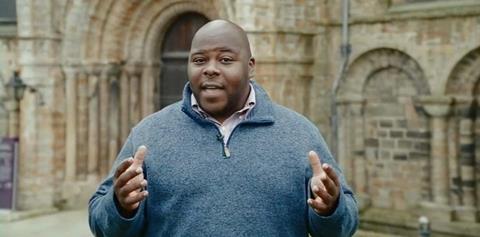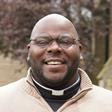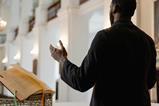As debates over same-sex relationships continue, evangelicals in the Church of England are looking more and more out of touch, says Rev Dr K. Augustine Tanner-Ihm. He believes the focus should be put back on the issues Jesus and the early Church cared about

In the last few weeks, evangelicals have been publicly discussing the church’s teaching on human sexuality and gender, due to the debates within the Church of England.
Prominent leaders have written articles and tweets, created well-produced videos, made speeches and donated to organisations that are campaigning heavily for the traditional understanding of marriage and relationships. Organisations such as the Evangelical Alliance, Christian Concern and The Church of England Evangelical Council has devoted much time and money to promoting their conservative theological view.
Even now, despite the debate in Synod being over, messaging is continuing to be pumped out. The amount of effort being expended on this issue by some groups is beginning to look like an obsession.
As an evangelical minister in the Church of England, this has caused hurt. Not only because of my own personal sexuality - I’m a gay man and a survivor of conversion therapy - but because of the number of resources devoted to banging the drum on this cause. I hope English groups do not go the same way as America, where leaders within the evangelical world have made careers out of combating the equality of LGBT persons. Books, conferences and speaking against the rights of gay people is a multi-million dollar industry.
I’ve lived in England for almost ten years, and I have seen a decrease in church attendance, two economic recessions, a continued disruption of the health service, four Prime Ministers, record inflation and increased economic inequality. While discussing the doctrines around human sexuality is important, it’s not the good news that evangelicals should be known for. There are bigger issues to be talking about.
Many churches are serving their communities through food banks, and charities such as Christians Against Poverty do amazing work here. But too many evangelicals have ignored the core issues facing our nation. Many are instead obsessed with culture wars (critical race theory, gender, homosexuality) rather than the real issues facing our society (poverty, child abuse, inflation).
With every video released in protest at the Synod’s decisions, evangelicals in the Church of England begin to look more and more out of touch. It seems that speaking about human sexuality is much sexier than attempting to care for orphans and widows.
Setting our priorities straight
Throughout the gospels, Jesus continues to warn people about money and greed. At the very heart of the Gospel that Jesus preached is a proclamation of the coming reign of God, a situation in which justice and peace would be the norm when the promises found in the prophets of Israel would be realised. This message involved both a message of hope and a trenchant critique of the world as it is.
The Church thoughtout the world and the early Church was marked by two things, their love for one another and their care for the people on the outside. It was Christians who would set up schools to educate poor children who had no access to education. It was the Church that created food banks as a radical way to combat rising poverty. The Church created hospitals because they believe Jesus is the healer.
The gospel offered a message of hope and a prophetic critique of the rich, it also issued a call to radical generosity and to a rejection of involvement with wealth and the corruption that it produced. The option for the poor is a central theme in the teachings of Jesus in the New Testament and is emphasised in the earliest Christian gospel, the Gospel of Mark. Jesus frequently spoke about caring for the poor, healing the sick, and showing compassion to those in need, and these teachings formed the foundation of the early Christian community’s commitment to serving the marginalised and oppressed. The late evangelical Anglican bishop David Shephard continued this tradition with the publication of Bias to the Poor in 1983.
I spent most of my childhood in a homeless shelter in Chicago and my family struggled to obtain the most basic human needs. I know many evangelical leaders will see this as liberalism, pragmatism, postmodern thought or just wrong. But as you write from your warm house and your assurance that you will eat another day, think about all those who are not as privileged as you. Attempt to put as many resources as you do to protect traditional marriage in a country where most people do not care about the institution into serving your community in practical ways.
If your relevance is only known by arguing against equality in the public square, then maybe we don’t have long left.




































